We caught up with the brilliant and insightful Lyric Rivera a few weeks ago and have shared our conversation below.
Lyric, appreciate you joining us today. Risking taking is a huge part of most people’s story but too often society overlooks those risks and only focuses on where you are today. Can you talk to us about a risk you’ve taken – it could be a big risk or a small one – but walk us through the backstory.
Part of my story is that I am Autistic, which means I sometimes struggle with taking risks and moving into the unknown. I find comfort in the types of predictability and routine that can make my non-autistic peers feel restless and bored.
While predictability grounds and soothes me, chaos, change, surprises, and the unknown trigger my flight/flight response, making me uneasy (and sometimes even physically sick). Even good changes, surprises, and new information can be hard on me, taking me longer to adjust than it takes non-autistic people to do so.
I can adjust to change. It just takes me extra time and lots more energy.
Though I’d been taking on clients as a “side project” while working with the safety net of multiple day jobs over the years, my organization, NeuroDivergent Consulting, almost didn’t become my full-time endeavor (because of my aversion to risk-taking and jumping into the unknown).
I do best with stability, which I don’t have as an independent consultant.
Working for someone else, you can count on a stable paycheck. Working on your own, the cash flow can be quite different. This risk and a tendency I, and many Autistic People, have to underestimate ourselves kept me from “jumping in” to my business full-time.
In the fall of 2020, I was forced to take a risk when my time working for an employer (whom I absolutely loved) suddenly ended when they were forced to do a round of layoffs (due to the COVID-19 pandemic).
We’d tried to keep the team together, all taking pay cuts and being flexible with our tasks and activities, looking for creative ways to adapt our business to a world that was rapidly changing, but I was between projects when the pandemic hit, and it made sense that I was one of the people cut when layoffs became inevitable.
We cried together on that Zoom call. There was, and still is, a lot of love between me and my former team. Like a baby bird, I was forced from the nest to take a risk and do something scary.
I took the news hard, but eventually, I would thank my old boss for letting me go, realizing that I would never have taken this leap alone (because of my risk aversion and fierce loyalty to my team and our organizational mission).
Once I found myself without a full-time job during a global pandemic, when jobs were scarce, I started out as I’d always done by updating my resume, seeking and applying for jobs every morning, and then working on my consulting business in the afternoons.
In the months from September to April, I applied for almost seventy jobs (with a note on my resume that I am “Autistic and Proud” – a change I made because my previous employer had known I was Autistic BEFORE interviewing me, and that openness had worked out very well). However, not one of the jobs I applied for called me back.
It was demoralizing because, in the past (when I wasn’t advertising that I am Autistic), I’d never had problems getting callbacks when applying for jobs, but suddenly (now that people know I’m Autistic), there was ZERO interest).
This was also the first time I’d done ANY serious job-hunting since starting my blog (NeuroDivergent Rebel) – where I publicly talk about being Autistic and ADHD (plus other disabilities I experience), as well as being Queer, Polyamorous, and nonbinary person.
Because my blog is reasonably popular, and I know that searching for my name would quickly fill the searcher’s screen with many results about these topics, I thought my best approach would be to be upfront with this part of my identity. However, this didn’t work out in my favor, helping me to re-focus on the reality that MOST organizations today are still NOT Neuro-Inclusive (and my previous employer was a rare gem).
With no alternative employers available to me, in April of 2021, I decided that I would stop looking for someone to hire me and instead focus all my attention on my business and the problem that MOST organizations don’t even know what NeuroDiversity, NeuroDivergence, or Neuro-Inclusion are – leading me to become a full-time Independent Business Consultant, and eventually to me releasing my best selling business ethics book (Workplace NeuroDiversity Rising) on the same topic.
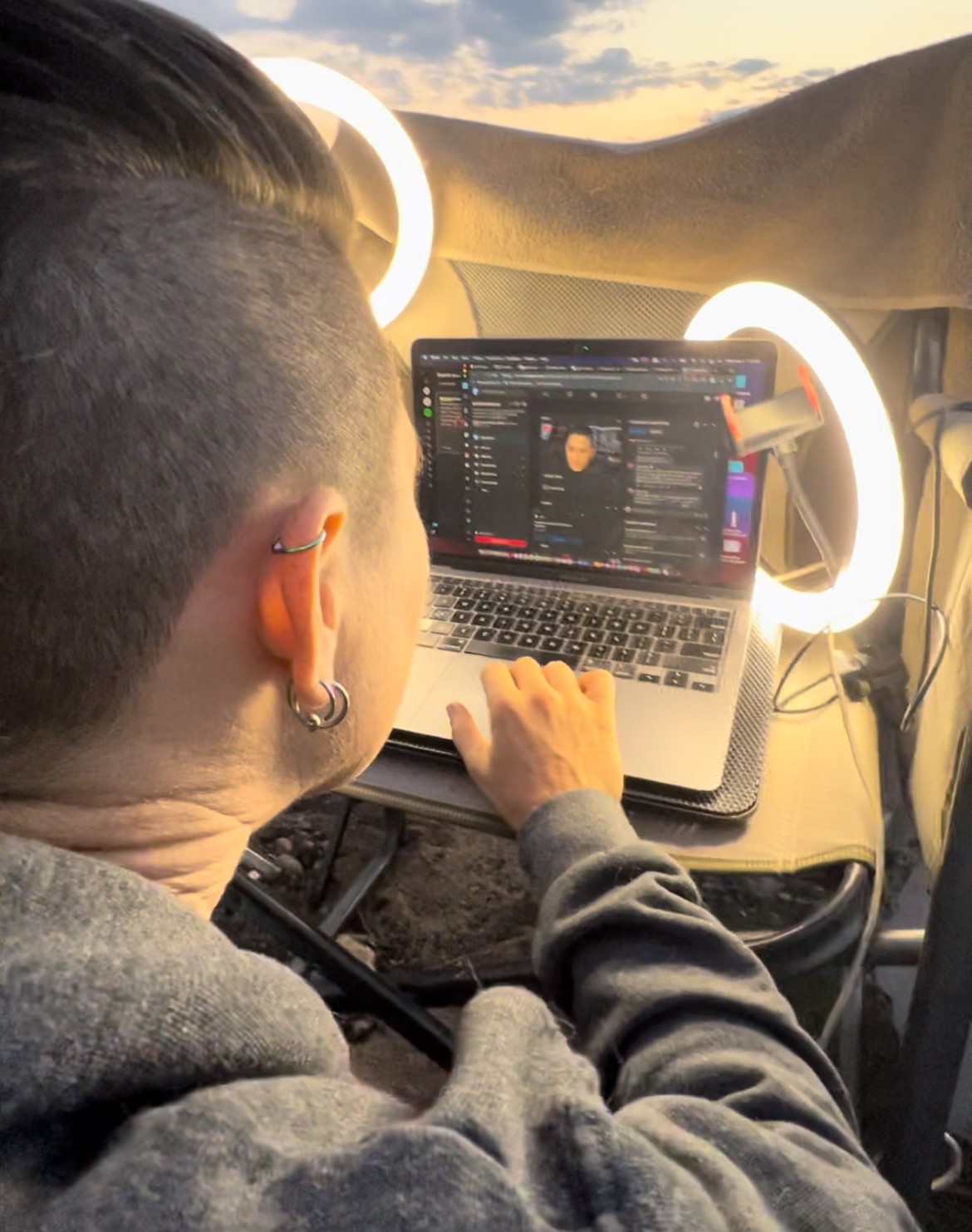
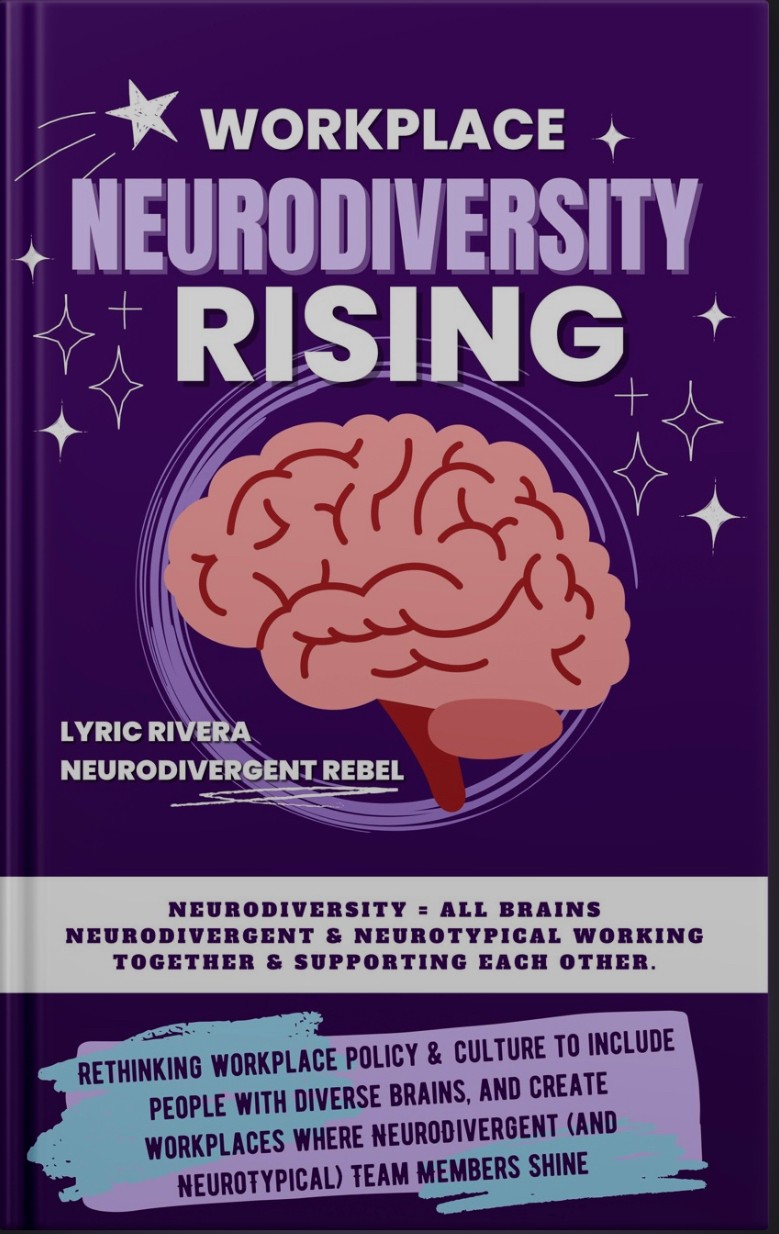
As always, we appreciate you sharing your insights and we’ve got a few more questions for you, but before we get to all of that can you take a minute to introduce yourself and give our readers some of your back background and context?
A LOT of how I got into this industry is in my previous submission… but I will share a bit more:
I’ve been working since I was 11 years old, but I found out I was Autistic when I was 29 years old, and my ADHD wasn’t diagnosed until a few years later.
At that point, I’d been in the workplace for many years. Having this new understanding of myself helped me clearly reflect on all the workplaces I’d been in over the years (the good and the bad) with new clarity on how those systems and structures had either been empowering or disempowering for me and other NeuroDivergent employees.
I’m a writer and always have been. As a kid, I wrote stories. As an adult, I write about the obstacles NeuroDivergent and Queer People face in the world. The blog (NeuroDivergent Rebel) started years before my consulting business, and the works of my blog became the teachings I share with my consulting clients. I also wrote a business ethics book on the subject, Workplace NeuroDiversity Rising.
I help organizations determine if their current policies keep or chase NeuroDivergent (and Queer) workers away from their workforce, as well as how to ensure they are supporting and fostering a healthy work environment for all of their employees.
I also work on writing and other projects that I feel will help build more understanding of NeuroDivergent and/or Queer People.
My services are:
Speaking/Training/Workshops
Hourly Business Consulting – on Queer &/or NeuroDivergent Inclusion
Training on Queer &/or NeuroDivergent Inclusion – Live and on-demand virtual options are available
In-Person Public Speaking – LIMITED AVAILABILITY
Voice Acting
Writing Projects
Writing – Blogs, Books, & Articles
NeuroDivergent Inclusion Sensitivity Reading
Autism Related Branding & PR
My projects are selective because I refuse to work with performative allies. I only want to work with organizations and individuals willing to do real work to improve the spaces around them.
Because I am only one person, selective of the work I take on, and can’t possibly do it all, I put the things I teach into an easy-to-read (and affordable) handbook, Workplace NeuroDiversity Rising (which I self-published in the fall of 2022). I’m very proud of my little book, which was praised in Forbes as “an excellent ‘how to manual’ based on lived experience and professional competence.” I hope it this tool will continue to help people make these changes long after I’m gone.
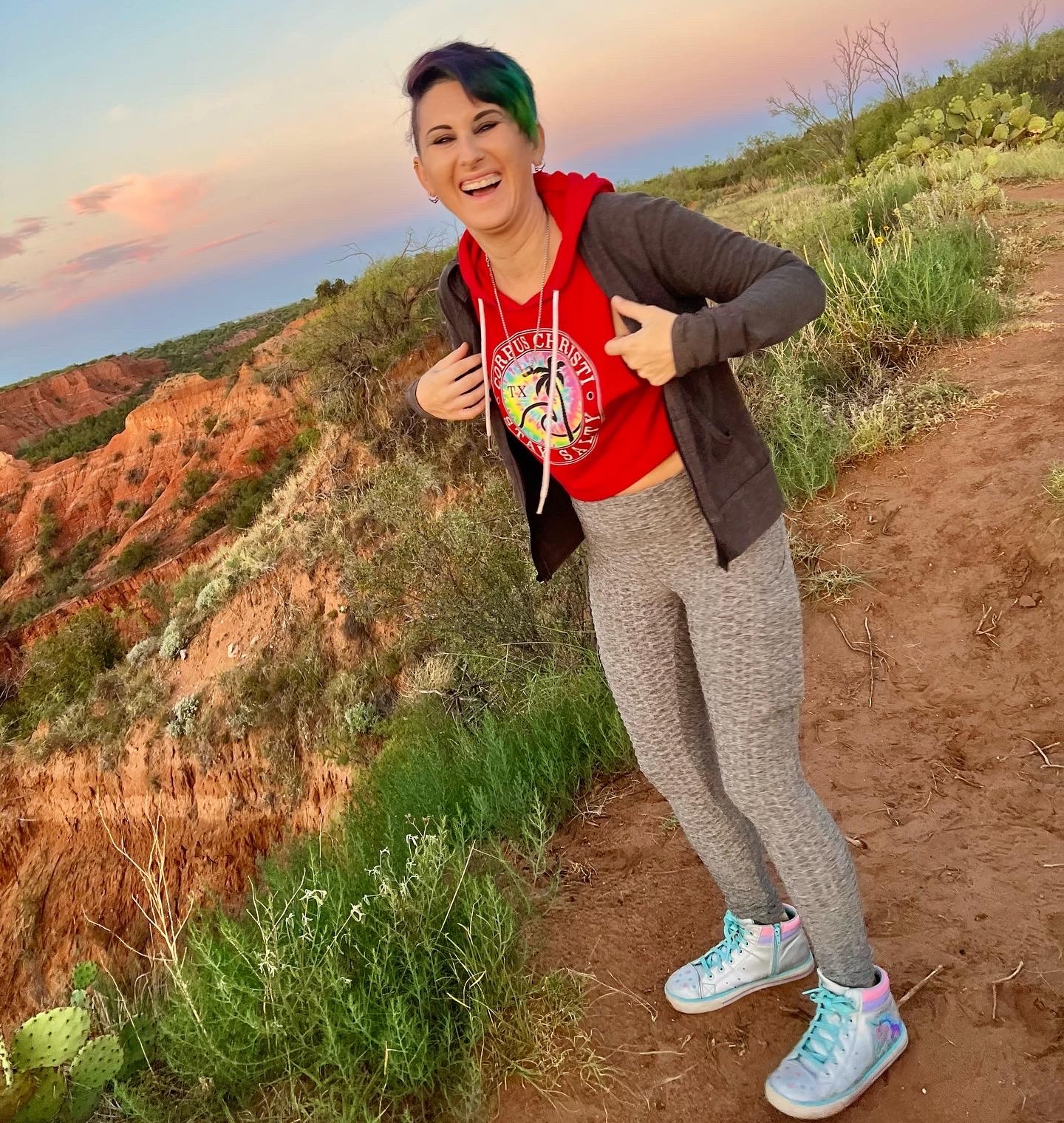
Any insights you can share with us about how you built up your social media presence?
Before my business, NeuroDivergent Consulting, I had a blog, NeuroDivergent Rebel.
NeuroDivergent Rebel is a space where I share my observations, thoughts, and opinions about the world around me.
Because I am AuDHD (Autistic ADHD) and Queer (nonbinary, pansexual, and polyamorous), my blog is filtered through a NeuroDivergent and Queer (or NeuroQueer) lens.
I set one rule for myself when I started my blog: I would post content that is helpful and/or brings joy or value to my reader’s day. Sometimes. I post a story meant to teach, provoke thought, or give insight into what it’s like to be a person like me. Other times, because I like to laugh and joke around, I share humorous memes, hoping to bring a smile to someone’s face.
Never take your community for granted.
If you want to build a social media community, remember that the community is about the people surrounding a person or page. Yes, my blog is a page about me, but without my readers, there would be NO blog.
Also, perhaps most importantly, BE AUTHENTIC… because people will know if you’re being fake (sensing something is “off”), and if you are NOT authentic, you won’t be able to attract people who will appreciate you for who you are.
We have enough fakes in the world. Be real. Be YOU!
Also, quality content over quantity. If possible, it also can help to get on a reliable posting schedule so your community can predict it. Pick a realistic schedule that works for you, whether posting daily, weekly, monthly, or quarterly (if the content is VERY HIGH quality).
It is better to post only a few high-quality posts instead of many low-quality ones. Plus, social media algorithms will down-rank you if you post too much of something it decides is low quality or “trash.”

Any advice for managing a team?
NeuroDiversity: Refers to the idea that there is a natural and broad spectrum of differences within the human brain and nervous system, including variations in cognitive, sensory, and emotional experiences that can vary significantly from person to person. NeuroDiversity recognizes and celebrates these differences as natural variations of the human experience that should be supported.
NeuroDiversity also rejects the idea that Autism and other neurological processing differences (ADHD, dyslexia, dyscalculia, hyperlexia, dyspraxia, and other conditions of the mind) are problems to be solved, challenging the prevailing views that neurological diversity is inherently something bad, asking NeuroTypical people to examine their biases towards NeuroDivergent people when we show up and interact with the world differently than our NeuroTypical peers do (which can cause us to be judged unfairly and inaccurately by those around us who expect us to act and engage in a neuro-normative way).
NeuroTypical is not the “default state of humanity.” It is simply an average our society is designed to cater to.
NeuroDiversity is vital because it gives us a new, more balanced, human way of viewing people with brain differences more compassionately, as part of a human spectrum of brains, allowing NeuroDivergent people to feel pride in ourselves instead of being shamed for our differences.
NeuroDiversity isn’t just about NeuroDivergent people. It is about understanding, supporting, and appreciating NeuroDiverse groups of people and the diversity of the human experience of everyone (regardless of brain type).
Neuro-Inclusion (brain inclusion) is inclusion and accessibility for everyone with a brain. By embracing NeuroDiversity and Neuro-Inclusion, we aim to create inclusive environments that support and empower individuals of all brain types, promoting equal opportunities for everyone’s participation, support, and well-being (NeuroTypicals too).
NeuroDivergent people are the modern workplace version of canaries in the coal mines. We can be more sensitive to our environments. We may even become physically or mentally unwell in a toxic setting before NeuroTypical people (who may fare better for longer but often still struggle, though not as much as NeuroDivergent people) do.
NeuroDivergent People need to make these changes, and, likely, many of your NeuroTypical team members will also appreciate the benefits of having a more accessible and inclusive workplace.
Empathy, emotional safety, and understanding are the foundation of a supportive environment for NeuroDivergent (and all) colleagues.
Actively and empathetically listening while seeking to understand individual experiences and perspectives can help to create a culture of inclusivity, fostering a sense of emotional safety and belonging (enabling team members of all brain types to thrive).
It can also be helpful to encourage team members to share feedback on how they communicate best, how people can best communicate and work with them, or how they feel meetings or your processes could be better or more inclusive.
By fostering an inclusive communication culture, you’ll enrich interactions and unlock the potential for better organizational communication.
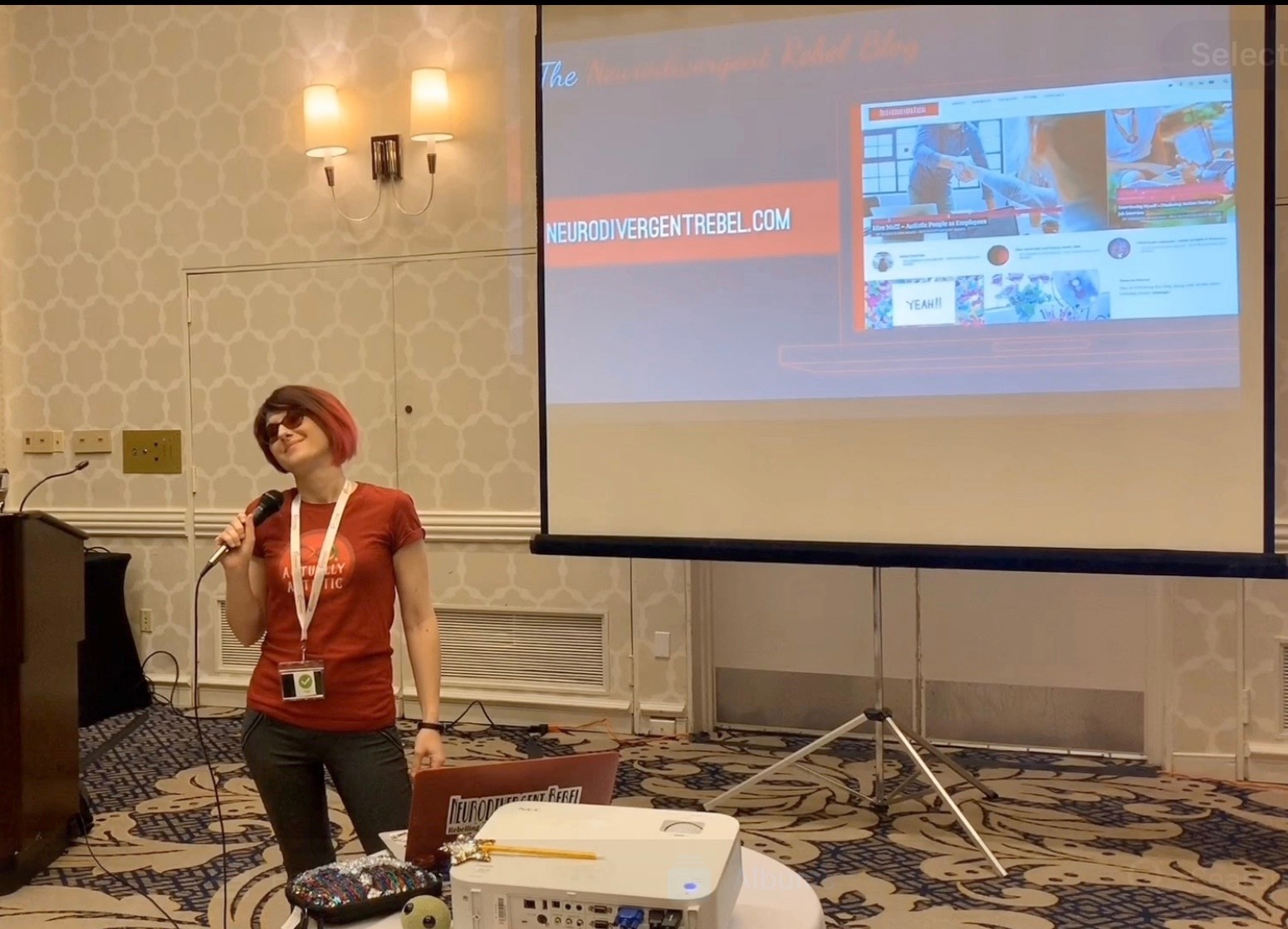
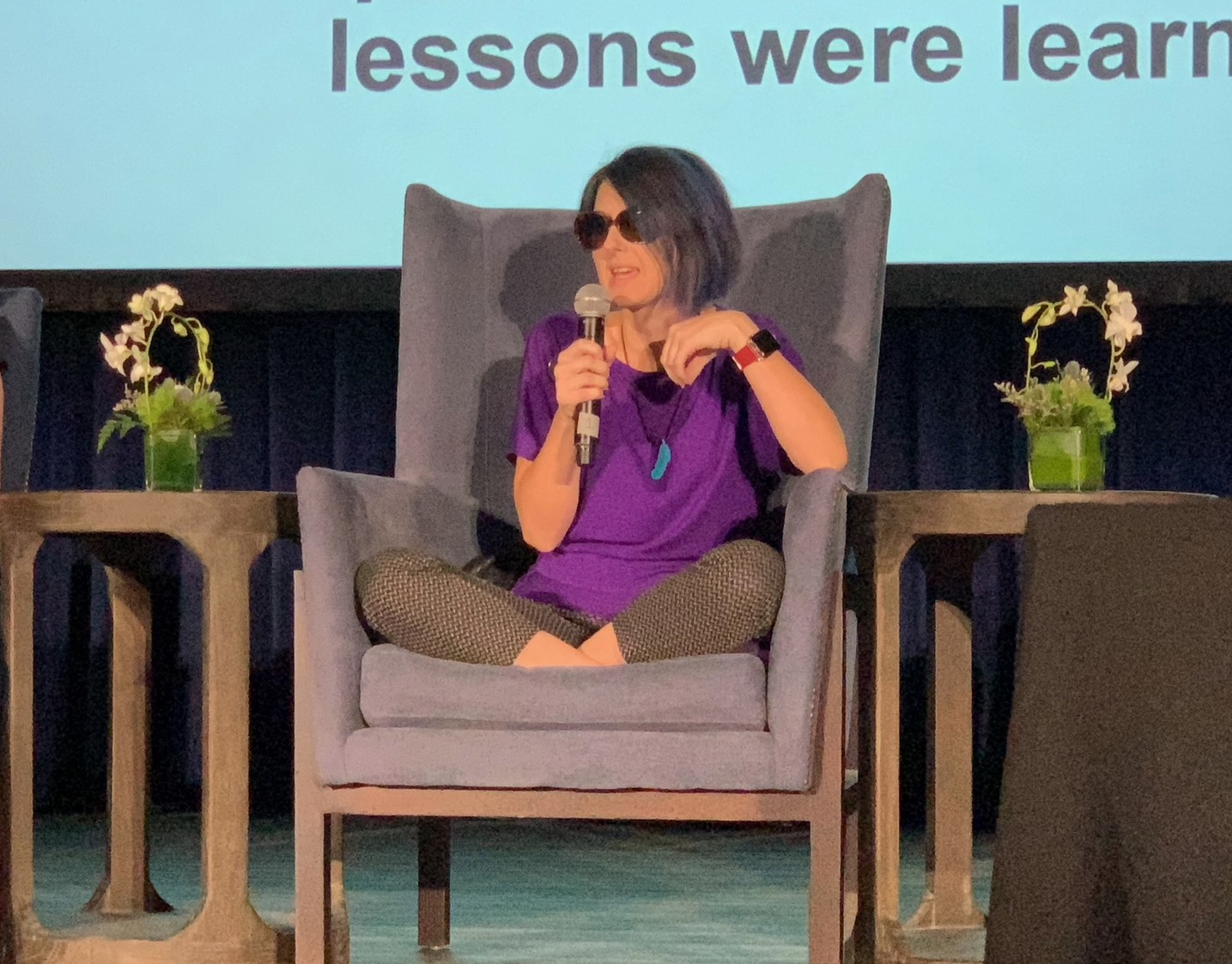
Contact Info:
- Website: www.NeuroDivergentRebel.com
- Instagram: www.instagram.com/neurodivergentrebel/
- Facebook: www.facebook.com/NeurodivergentRebel/
- Linkedin: www.linkedin.com/in/neurodivergentrebel/
- Twitter: www.twitter.com/NeuroRebel
- Youtube: https://www.youtube.com/channel/UCdaQVw-dxYuZb2GXHL7LSjA
- Other: books2read.com/neurodiversity-rising neurodivergentconsulting.org www.threads.net/@neurodivergentrebel


